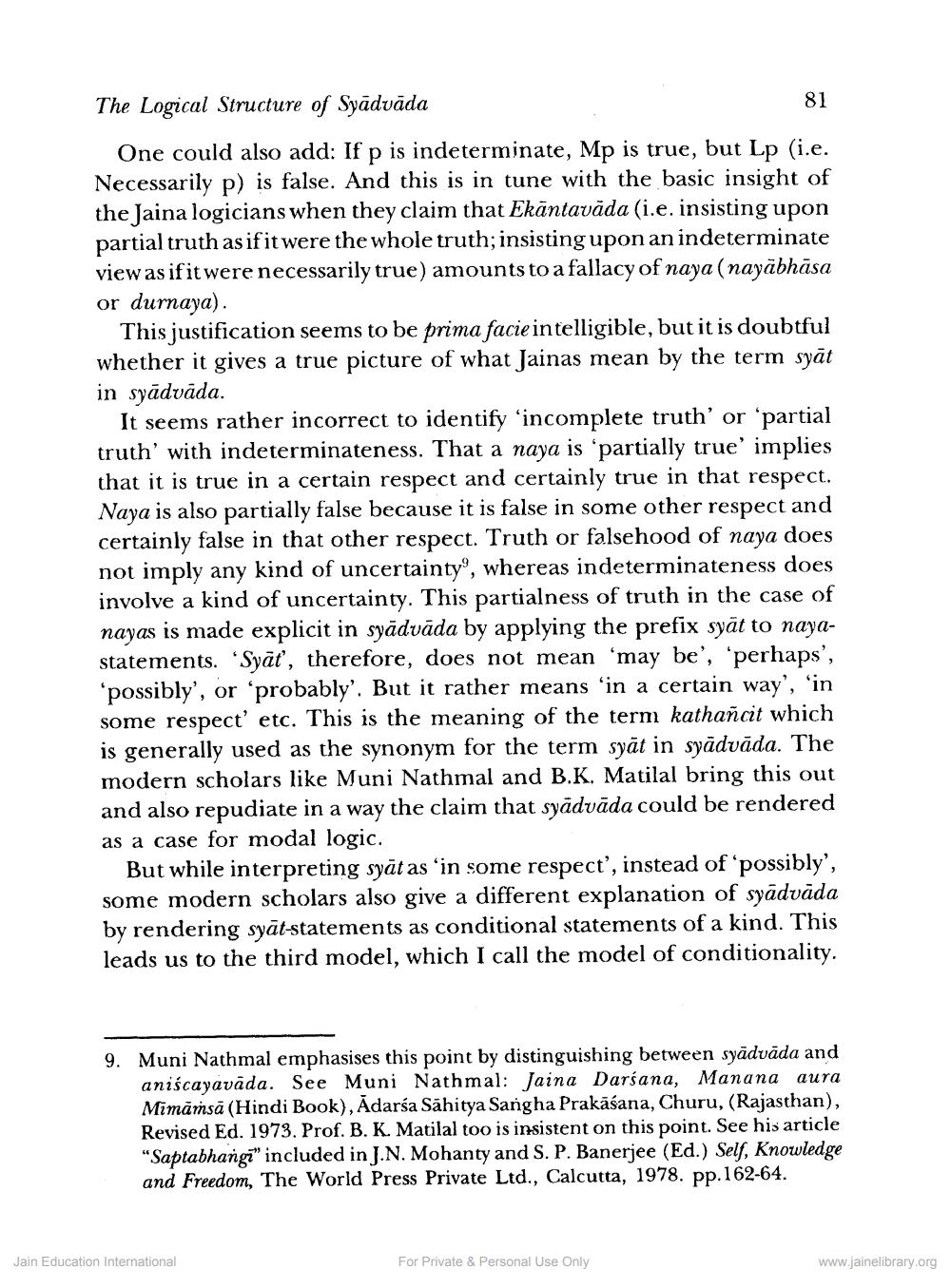________________
The Logical Structure of Syādvāda
81 One could also add: If p is indeterminate, Mp is true, but Lp (i.e. Necessarily p) is false. And this is in tune with the basic insight of the Jaina logicians when they claim that Ekāntavāda (i.e. insisting upon partial truth as if it were the whole truth; insisting upon an indeterminate view as if it were necessarily true) amounts to a fallacy of naya (nayābhāsa or durnaya).
This justification seems to be prima facie intelligible, but it is doubtful whether it gives a true picture of what Jainas mean by the term syāt in syādvāda.
It seems rather incorrect to identify 'incomplete truth' or 'partial truth' with indeterminateness. That a naya is 'partially true' implies that it is true in a certain respect and certainly true in that respect. Naya is also partially false because it is false in some other respect and certainly false in that other respect. Truth or falsehood of naya does not imply any kind of uncertainty', whereas indeterminateness does involve a kind of uncertainty. This partialness of truth in the case of nayas is made explicit in syādvāda by applying the prefix syāt to nayastatements. 'Syāt, therefore, does not mean ‘may be', 'perhaps', 'possibly', or 'probably'. But it rather means 'in a certain way', 'in some respect' etc. This is the meaning of the term kathancit which is generally used as the synonym for the term syāt in syādvāda. The modern scholars like Muni Nathmal and B.K. Matilal bring this out and also repudiate in a way the claim that syadvāda could be rendered as a case for modal logic.
But while interpreting syāt as ‘in come respect, instead of possibly', some modern scholars also give a different explanation of syādvāda by rendering syāt-statements as conditional statements of a kind. This leads us to the third model, which I call the model of conditionality.
9. Muni Nathmal emphasises this point by distinguishing between syādvāda and
aniscayavāda. See Muni Nathmal: Jaina Darsana, Manana aura Mimāṁsā (Hindi Book), Adarśa Sahitya Sangha Prakāśana, Churu, (Rajasthan), Revised Ed. 1973. Prof. B. K. Matilal too is insistent on this point. See his article "Saptabhangi" included in J.N. Mohanty and S. P. Banerjee (Ed.) Self, Knowledge and Freedom, The World Press Private Ltd., Calcutta, 1978. pp. 162-64.
Jain Education International
For Private & Personal Use Only
www.jainelibrary.org




